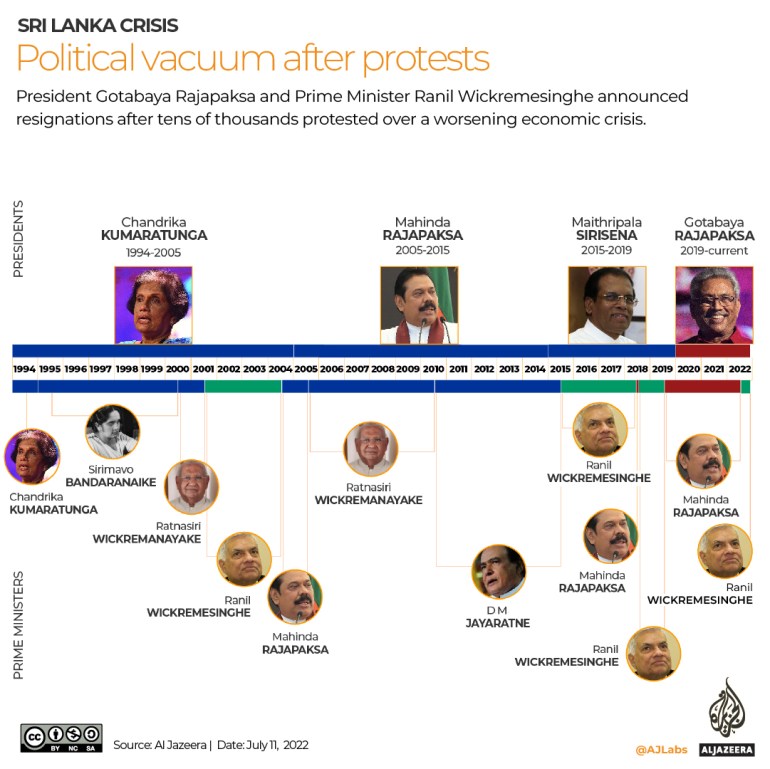Sri Lankan immigration officials say they have prevented the president’s brother and former Finance Minister Basil Rajapaksa from flying out of the country, as anger rises against the powerful family for a debilitating economic crisis.
It was not immediately clear where Rajapaksa, who also holds United States citizenship, was trying to go. He resigned as finance minister in early April as street protests surged against shortages of fuel, food and other necessities and quit his seat in parliament in June.
His elder brother Gotabaya Rajapaksa is expected to resign as president on Wednesday to make way for a unity government after thousands of protesters stormed his official residence on Saturday demanding his resignation.
The president has not been seen in public since Friday and his whereabouts are unclear.

The Sri Lanka Immigration and Emigration Officers Association on Tuesday said its members declined to serve Basil Rajapaksa at the VIP departure lounge of the Colombo airport.
“We were informed yesterday (Monday) that Basil Rajapaksa could leave Sri Lanka. But as we had decided to withdraw from duties from midnight, we didn’t see him arriving,” K A S Kanugala, president of the association, told Al Jazeera.
Pictures of Basil Rajapaksa at the lounge were reported by local media and widely shared on social media, with some expressing their anger at his attempts to leave the country.
“Following our decision to withdraw, Mr Rajapaksa reportedly came for check-in in normal passenger area. There, angry passengers shouted at him and he has reportedly left the airport,” said Kanugala.
“What we can confirm is that he didn’t leave Sri Lanka officially.”
Basil Rajapaksa could not be reached immediately for comment and a close aide declined to give details.
A top official in the governing party said on condition of anonymity that Basil Rajapaksa was still in the country.
The Rajapaksa family, including former Prime Minister Mahinda Rajapaksa, has dominated the politics of the country of 22 million for years and most Sri Lankans have blamed them for their current misery.
The tourism-dependent economy was hammered badly by the COVID-19 pandemic, as were remittances from overseas Sri Lankans, while a ban on chemical fertilisers damaged farm output. The ban was later reversed.
The Rajapaksas implemented populist tax cuts in 2019 that affected government finances while shrinking foreign reserves curtailed imports of fuel, food and medicines.
Petrol has been severely rationed, and long lines have formed in front of shops selling cooking gas. Headline inflation hit 54.6 percent last month, and the central bank has warned that it could rise to 70 percent in the coming months.
Protesters have pledged to stay put in the president’s official residence until he quits. Some protesters also set fire to Prime Minister Ranil Wickremesinghe’s private residence in Colombo on Saturday.
Sri Lanka’s parliament will elect a new president on July 20, paving the way for an all-party government.





